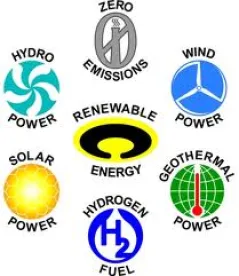As we have previously discussed (please see here for a more detailed discussion), the Tax Cuts and Jobs Act (TCJA) limits a taxpayer’s interest deductions in a taxable year to the sum of (A) the taxpayer’s business interest income for the year and (B) 30% of such taxpayer’s adjusted taxable income for the year. Through the taxable year of 2021, the adjusted taxable income calculation allows a taxpayer to add back depreciation, amortization and depletion, thereby increasing the interest deduction limitation. After 2021, the adjusted taxable income will not be increased by depreciation, amortization and depletion, resulting in a lower interest deduction limitation. For interest expenses incurred by a partnership, the limitation is first determined at the partnership level. Any excess interest expense of the partnership is allocated among the partners and suspended at the partner level until such partner is allocated excess taxable income from the same partnership in a later year.
The renewable energy industry relies on both tax equity investment and traditional debt financing to help fund project constructions. The lower corporate tax rate established by the TCJA will decrease both the number of tax equity investors and the amount of income taxes a tax equity investor needs to shield. In addition, the lower corporate tax rate will also reduce the value of tax deductions and thereby increase the cost of tax equity capital. The potential limit on tax equity capital imposed by the base erosion anti-abuse tax provisions (please see here for a more detailed discussion) will put additional pressure on the availability of tax equity capital. All of these factors are expected to reduce the availability of tax equity capital for renewable energy projects. Since tax equity investments will constitute a smaller portion of the required capital for renewable energy projects in the post-TCJA environment, traditional debt financing will likely play a bigger role in funding renewable energy projects.
For renewable energy projects with debt financing at the project company level, any interest deduction limitation will first be determined at the project company level. Any excess interest expense of the project company is allocated among the developer and the tax equity investor. Since renewable energy projects typically incur significant amount of depreciation deductions, especially in the early years, the interest deduction limitation is less likely to affect a new project company through 2021, when the adjusted taxable income is increased by depreciation. However, after 2021, the limitation is more likely to come into play for such project companies. In addition, since there is no grandfather relief for existing indebtedness, existing project companies that are highly leveraged may also be subject to the limitation. If interest deductions allocated to the tax equity investor are subject to the limitation, the after-tax yield of the tax equity investor will decrease, requiring the project company to distribute additional cash to compensate the tax equity investor.
Renewable energy projects often rely on back-levered debt. A back-levered debt is an indebtedness incurred by the developer to fund its equity investment in the project company. In such a structure, the developer would use back leverage to borrow against its share of the project company cash flow. Since back-levered debt is incurred by the developer, not the project company, the limitation of the interest expense deduction should be determined at the developer level.
The decrease in the tax equity capital and the limit on debt financing may be good news for cash equity investors. Developers that otherwise would not be looking for cash equity may now seek capital from cash equity investors including preferred equity. Alternatively, developers may also consider alternative structures such as sale-leaseback, since rental payments are not subject to interest deduction limitations.




 />i
/>i
